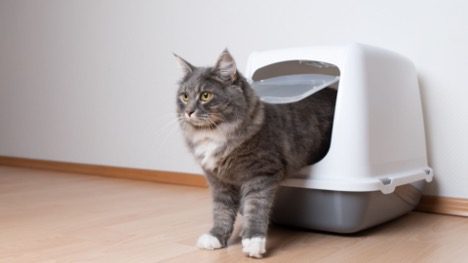Cat litter is a common product found in many homes that cat owners use to help keep their cats' litter boxes clean. However, some people are concerned about whether or not cat litter is toxic to smell. In this article, we will explore the potential toxins that may be present in cat litter and discuss whether or not they can cause adverse health effects.
Is Cat Litter Toxic to Smell?
There is a lot of conflicting information out there about whether or not cat litter is toxic to smell. Some people claim that certain types of cat litter can cause negative health effects like respiratory irritation, headaches, and nausea. However, others argue that these claims are largely unfounded and that cat litter is generally safe for use.
At this point, it seems that the jury is still out on whether or not cat litter can be toxic to smell. More research needs to be done in order to better understand how cat litter may affect our health and what steps we can take to minimize any potential risks. In the meantime, it is important for cat owners to proceed with caution when choosing a type of cat litter and to consult their healthcare provider if they have any concerns.
How to Properly Ventilate an Area when Using Cat Litter?
When using cat litter, it is important to properly ventilate the area in order to reduce exposure to any potentially toxic substances that may be present.
This can be done by opening windows and doors to allow fresh air to circulate, installing the best air purifier for cat litter toxic odors, and taking other steps such as wearing a face mask or protective gear when handling the litter.
Additionally, you can try using natural alternatives like citrus peels or essential oils in your cat's litter box, which may help to minimize odors without introducing any harmful chemicals into your home. Ultimately, the key is to do your research, talk to a healthcare provider if you have any concerns, and take appropriate precautions to keep you and your cat safe.
Symptoms of Cat Litter Toxicity:
Symptoms of cat litter toxicity may include respiratory irritation, headaches, nausea, and dizziness. If you experience any of these symptoms after using cat litter, it is important to consult your healthcare provider right away. Additionally, it is a good idea to talk to your veterinarian about other safe and effective options for managing your cat's litter box needs.
How to Prevent Cat Litter Toxicity?
There are several steps you can take to help prevent cat litter toxicity.
For example, it is important to choose a high-quality cat litter that is free of harmful chemicals and toxins. You should also avoid breathing in the dust or particles produced by the cat litter, and make sure to wear a face mask or other protective gear as needed.
Additionally, it may be helpful to use an air purifier or ventilation systems to reduce exposure to any potentially toxic substances that may be present in your home.
Natural Alternatives to Traditional Cat Litters:
If you are looking for a more natural alternative to traditional cat litter, there are several options available. Some popular alternatives include clay-free cat litters made from plant-based or biodegradable materials, as well as kitty litter mats and litter box liners that help prevent the spread of odors and waste particles.
You can also try using citrus peels or essential oils in your cat's litter box to reduce unpleasant smells without introducing any harmful chemicals into your home. Whatever option you choose, it is important to do your research and consult a veterinarian or other healthcare provider before making any major changes to your cat's care routine.
Conclusion:
The blog post discusses the potential toxicity of cat litter, as well as the symptoms and prevention methods associated with this issue. It also explores some natural alternatives to traditional cat litters and offers advice on how to properly ventilate an area when using cat litter. Overall, the key points of the blog post include the need for more research into the safety of cat litter, as well as practical steps that can be taken to reduce exposure and minimize any health risks associated with its use.


